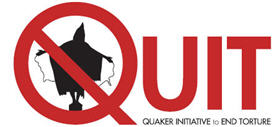Small signs that justice can prevail
By Gwynne Dyer
Wednesday, October 10, 2012
“I wish to make it clear before I cross-examine the three claimants the (British government) does not dispute that each of the claimants suffered torture and other ill-treatment at the hands of the colonial administration (in Kenya),” said the British government’s defence lawyer, Guy Mansfield.
Damn right they did. One, Paulo Nzili, was beaten so hard he went deaf, and was castrated in public with pliers used to geld cattle.
British colonial officers commanded the African troops who did that and worse to Nzili and thousands of others in concentration camps Britain set up to hold suspected supporters of the Mau Mau rebellion in Kenya in the 1950s. Fifty years later, it has finally made it into the courts.
About 70,000 people spent years in the British camps in Kenya. Some were murdered, and almost all were beaten, sexually abused and/or tortured. But it was a long time ago, and only about 5,000 former inmates of the camps were still alive when three of them, Nzili, Jane Muthoni Mara and Wambuga wa Nyingi, decided to sue Britain for compensation.
With financial support from Kenyan human rights organizations, they launched their case in the high court in London. The British government, while admitting the torture, claimed the victims should sue the Kenyan government instead, since it had inherited responsibilities of the former colonial administration at independence in 1963.
Lawyers really do use arguments like that. They don’t even blush when they do it. But in June of last year the high court rejected the British government’s defence — whereupon its lawyers said it was all far too long ago. The few surviving witnesses are too old, and there are no documents. Sorry, we’d love to help, but in the circumstances . . .
Last Friday the same high court judge dismissed that argument, too. There are actually almost too many documents: the publicity surrounding the case led to the discovery the British Foreign Office has been hiding 8,800 files on Kenya abuses for the past 50 years.
Those files contain enough evidence to prove the truth of what the claimants say. The British government will appeal the judge’s ruling, probably in the hope of dragging things out until the claimants die (two are in their mid-80s) or become too ill to testify. But it’s likely the actual lawsuit will be heard next year, and will result in a victory for the claimants.
That would open the floodgates for thousands more claims for compensation from other Kenyan victims of British atrocities. It would also allow many thousands of aging victims of British violence elsewhere during the last years of the empire to seek compensation in British courts for their suffering.
So what are the chances a British or American court will one day offer compensation to innocent Arabs, Afghans and other Muslims swept up in the so-called “war on terror” and confined for years without charge or trial, often beaten or tortured?
Gradually, the courts are making inroads on this ancient and brutal reality. As in, for example, Kenya itself. After the terrible post-election violence of 2008, in which both leading parties were implicated, a Commission of Inquiry recommended the Kenyan government set up a tribunal to prosecute those responsible.
The National Assembly of Kenya refused. But the judge passed his evidence to the International Criminal Court, which opened a case against senior officials of both parties. The government did everything it could to stop the case, but it is going ahead in the Hague — and a majority of Kenyans support the process.
So there is progress, if only slowly.
Gwynne Dyer is an independent journalist whose articles are published in 45 countries.
